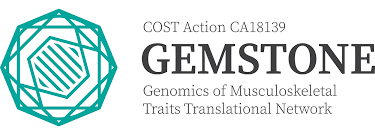EDITORIAL
Published on 23 Dec 2022
Editorial: The “GEnomics of MusculoSkeletal traits TranslatiOnal NEtwork” (GEMSTONE)
doi 10.3389/fendo.2022.1110170
- 941 views
- 1 citation
9,285
Total downloads
30k
Total views and downloads
You will be redirected to our submission process.
EDITORIAL
Published on 23 Dec 2022
REVIEW
Published on 01 Dec 2021

REVIEW
Published on 30 Nov 2021

REVIEW
Published on 16 Aug 2021

REVIEW
Published on 13 Aug 2021

REVIEW
Published on 09 Oct 2020


